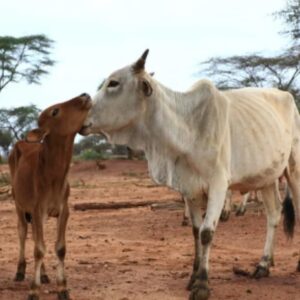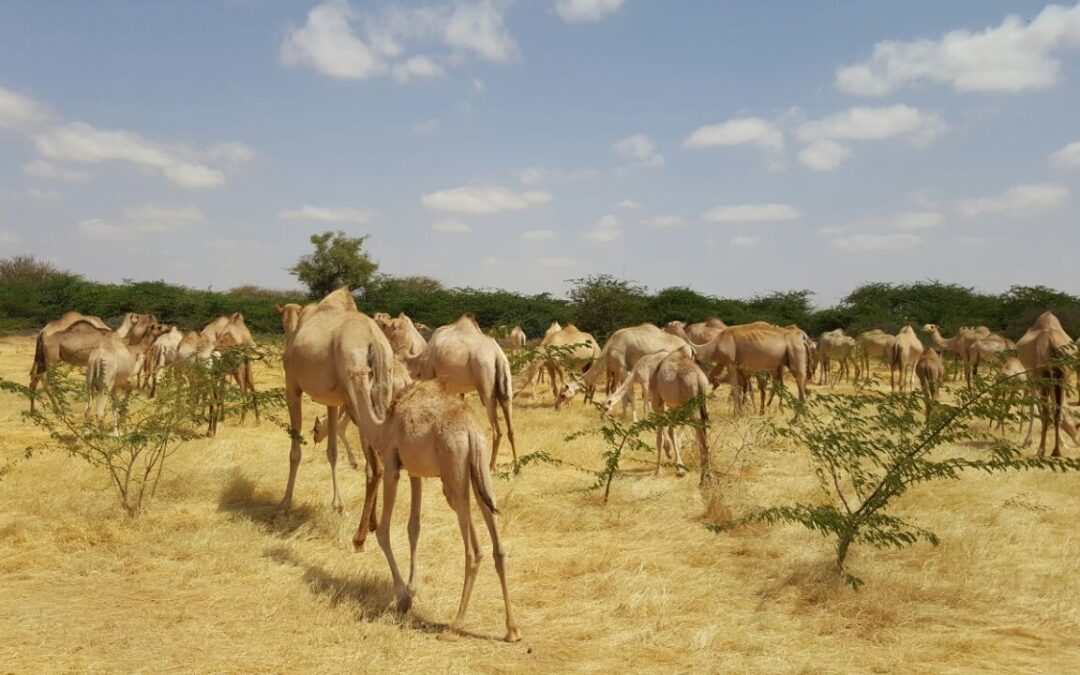Climate Change Threatens Traditional Livelihoods in Somalia
Somalia is in the grip of climate change, which is increasingly threatening the sustainability of traditional pastoral and agropastoral livelihoods. Recurring droughts have gradually weakened household resilience over time, resulting in high levels of household and economic vulnerability to climate shocks, given the weak state capacity to mitigate the effects of these shocks.
The Impact of Droughts on Community Coping Mechanisms and Livestock Dependency
The increasing frequency and severity of the droughts, along with their widespread impact, render redundant the traditional community coping mechanisms based on kinship and mutual support in times of hardship. The effects of droughts are increasingly devastating for local communities and wider society due to the high dependency on pastoral and seasonal rainfed farming systems. Livestock has indeed been the traditional repository of rural household assets and wealth for centuries, and it remains a crucial resource that can be drawn upon in times of hardship.
Challenges and Opportunities in Introducing Livestock Insurance in Somalia
The recurrent climate shocks not only lead to human suffering during and following the loss of livestock, but they also impact the decisions that herders make during “boom” periods, resulting in lower income streams compared to what could be achieved in the absence of this looming risk of another drought. As there is currently little prospect that the underlying risk can be reduced through new production technologies in a cost-effective manner, such as irrigated fodder production, introduction of new breeds, or pasture seeding, an alternative solution is to introduce financial instruments that allow people to manage the risk. Index-based Livestock Insurance (IBLI), which has already been introduced in Kenya and Ethiopia, has recently emerged as a promising risk management instrument. 
Sociocultural Perceptions and Historical Context of Insurance in Somalia
There are distinct structural and sociocultural issues that could potentially make the design of the insurance mechanism and the adoption of resulting livestock insurance products more challenging in Somalia compared to other regional countries. While a large proportion of rural households in Kenya and Ethiopia are aware of IBLI and use other types of insurance products, the awareness of such options among Somalis is very low. In particular, insurance is almost an alien concept in Somalia and is often perceived as an un-Islamic practice. Indeed, there have been few or no insurance products in the country since the collapse of the Somali government-run national insurance in 1990. A new private sector-led insurance industry is now emerging, but it is still weak and underdeveloped.
Informing Industry Decisions and Policymaking
In this setting, robust behavioral research is urgently needed to establish the attitudes toward livestock insurance and the willingness to pay for an insurance premium. This research will support industry decision-making and policymaking in this area. Understanding the local sociocultural context is critical for generating relevant and rigorous evidence for policymaking. ASH has a wealth of experience in the local context and is currently exploring regional and international research partnerships.


